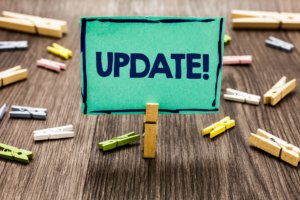Latest Session Update
April 19, 2019
 With 10 days remaining, tax increases still await …
With 10 days remaining, tax increases still await …
Wednesday was the opposite house of origin cut-off, which means the legislature will be focused primarily on fiscal matters, including a new mix of taxes. In the days winding down to the end of regular session, constitutionally mandated to be April 28th, rumors abound about the need for a special session again this year. One thing remains clear, it’s not a question of when taxes will be raised, but by how much.
With the House and Senate passing record-setting budgets that spend 18% more than the previous budget, committees continue to evaluate new taxes and tax increases that could be as high as $1.4 billion in new revenue – in addition to $5.6 billion in windfall revenue.
Our question for lawmakers remains, how do you create affordable homeownership by increasing the cost? You cannot increase the taxes on a piece of developable land and not expect the cost to be passed onto the home buyer. You cannot increase B&O taxes by 10% on all services related to the construction of a new home and not expect those to be passed on to the home buyer. You cannot assess a special fee on a new home and not expect the home buyer to pay for it.
This bill includes a variety of pro-growth actions, that would be appeal-exempt if cities take them, thus providing protection for adopting pro-growth policies. Also included is a State Environmental Policy Act (SEPA) transportation appeal exemption for any projects that are consistent with underlying transportation plans. This bill includes a data collection piece regarding local development regulations and affordability. This will be key in the future to determine what cities are doing it right and which ones need more help with housing development.
This bill relates to the Department of Fish and Wildlife’s (DFW) hydraulic project approval (HPA) process. HB 1579 removes the requirement for DFW to issue an HPA with or without conditions on single-family residential bulkheads. This bill will set up a system where residential bulkhead permit applicants will now have to go through two processes that may conflict with each other: the local shoreline management programs rigorous standards for shoreline construction and the DFW’s unwritten, non-specific requirements for HPAs. This sets up a cycle of conflicting and overlapping requirements that put shoreline development into regulatory uncertainty.
Unfortunately, this bill passed the Senate and goes back to the House for concurrence
